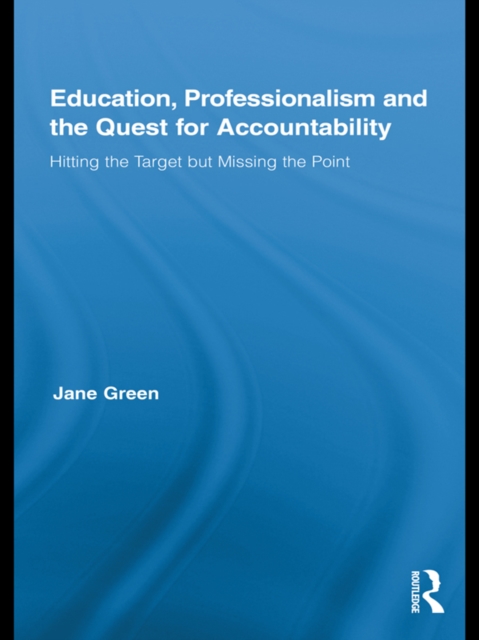
Education, Professionalism, and the Quest for Accountability : Hitting the Target but Missing the Point EPUB
by Jane Green
Part of the Routledge International Studies in the Philosophy of Education series
EPUB
Description
This book focuses on education and its relation to professional accountability as viewed from two different, but not unrelated, perspectives. First, the book is about the work of professionals in schools and colleges (teachers, head teachers, leaders, principals, directors and educational managers, etc.) and the detrimental effects which our present system of accountability - and the managerialism which this system creates - have had on education, its practice, its organization, its conduct and its content. It is also about the professional education (the occupational/professional formation and development) of practitioners in communities other than educational ones and how they, too, contend with the effects of this system on their practices.
These different perspectives represent two sides of the same problem: that whatever one's metier - whether a teacher, nurse, social worker, community officer, librarian, civil servant, etc - all who now work in institutions designed to serve the public are expected to reorganize their thoughts and practice in accordance with a "performance" management model of accountability which encourages a rigid bureaucracy, one which translates regulation and monitoring procedures, guidelines and advice into inflexible and obligatory compliance. A careful scrutiny of the underlying rationale of this "managerial" model shows how and why it may be expected, paradoxically, to make practices less accountable - and, in the case of education, less educative.
Information
-
Download - Immediately Available
- Format:EPUB
- Pages:280 pages
- Publisher:Taylor & Francis
- Publication Date:20/05/2011
- Category:
- ISBN:9781136837203
Other Formats
- PDF from £42.11
Information
-
Download - Immediately Available
- Format:EPUB
- Pages:280 pages
- Publisher:Taylor & Francis
- Publication Date:20/05/2011
- Category:
- ISBN:9781136837203










